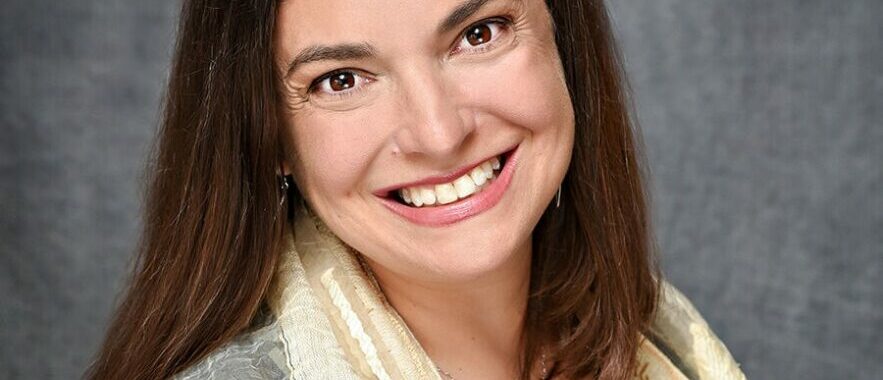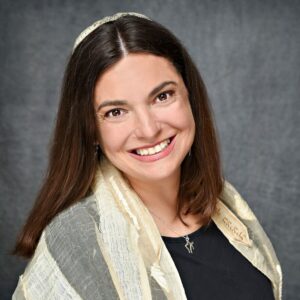By Cantor Sharon Hordes
As the High Holidays approach, one of the things I look forward to the most is observing the various reunions unfolding in the sanctuary during services. Your hugs and smiles fill my heart as I watch from the vantage point of the
bima. In Judaism we have three pilgrimage holidays: Pesach, Sukkot and Shavuot—where our ancestors would travel to Jerusalem to bring their sacrificial offerings to the Temple, though neither Rosh Hashanah nor Yom Kippur required such a pilgrimage. That said, I would argue that in our time, the Yamim Noraim (ten days of repentance from Rosh Hashanah through Yom Kippur) have the feeling of a modern day “pilgrimage holiday.” Whether we travel to other cities to be with our families or attend local services, all who participate are gathering with our fellow Jewish families and friends. I imagine that the joy percolating throughout the crowds in ancient Jerusalem — filled with friendly, familiar faces — was not unlike how we feel when we spot our dear friends and families in our respective sanctuaries.
I want to emphasize that this wondrous feeling doesn’t have to be reserved only for the High Holidays. It is built into the practice of Judaism and is available at any given time, whether at a worship service, a class or a particular program. Our tradition is replete with wisdom regarding the benefit of coming together in person to pray, learn, celebrate, and to comfort the mourner. The great sage, Hillel, exhorted us to not separate ourselves from the community. In saying this, he was impressing upon his fellow Jews that we need one another in order to be whole — and that happy as well as tough times are better experienced together. Lord Rabbi Jonathan Sacks, too, stressed our interdependence on one another by defining “community” as “society with a human face.” Rabbi Jill Jacobs reminds us that we define ourselves as an “Am Yisrael,” “the people of Israel,” rather than as a “Dat Yisrael,” “the religion of Israel”.
We live in an age when interacting with one another through screens is easily accomplished. For those with limited mobility, or who live a great distance apart from one another, online can be the only effective way to communicate and participate. Still, I know I’m not alone in believing that digital participation is not an equal substitute for togetherness, especially if meeting in person is possible. I understand that attending services and classes online is satisfying and convenient for some. But, by doing so, our lack of physical presence may be diminishing the communal experience for those attending in person. The rabbinic sages could not have predicted live streaming or Zoom. Yet they knew that there was power in communal prayer. There’s a reason they required a quorum of ten adult Jews to enable the mourner to recite the Mourner’s Kaddish. They understood how the process of mourning was helped along by praying with one’s community. You may feel content praying or learning from home. But by making that choice, your fellow Jew who came to shul in person, seeking comfort or fellowship, does not have the benefit of your physical presence.
The purpose of this article is not to shame or guilt anyone into attending services or events in person. I acknowledge that by offering these gathering opportunities online, we are making them more accessible for people who can’t physically come to our buildings because of illneåss, mobility issues or lack of transportation. I also appreciate that everyone’s time is precious, and those who live a great distance from our houses of worship would be spending an inordinate amount of time driving to and from them. Lastly, attending services, classes or programs online at home, rather than driving to your synagogue or temple, is ultimately a “greener” choice. At the same time, I urge you to consider the rabbis’ original intent of the minyan requirement for those in their most vulnerable circumstances. I ask that if you’re a regular “Zoomer,” you choose at least one hybrid event a month to attend in person, if possible. To borrow a famous quote from a decidedly not Jewish but highly regarded past president: Ask not what your community can do for you, but what you can do for your community.
Best wishes to all for a happy, healthy and spiritually fulfilling New Year!
Sharon Hordes is Cantor of Keneseth Israel Congregation




